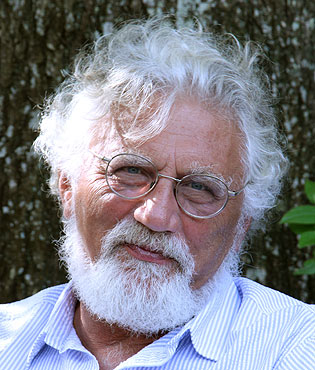

The Woman Who
Lost Her Soul
Not without a fair amount of exchange has The Woman Who Lost Her Soul been chosen as the recipient of
the 2014 Dayton Literary Peace Prize. Perhaps that is as it should be. No book that takes seriously as its
subject American military intervention, the C.I.A., and incest�both actual and as metaphor�is going to be easy
to love; no book that enacts for us how little what we read in the press, even the very concerted and investigative
press, has any kind of access to what we might think of as �the truth,� what actually happened, who did what
to whom? The epigraph to Book One of The Woman Who Lost Her Soul is Winston Churchill: �In wartime,
truth is so precious that she should always be attended by a bodyguard of lies,� and at the center of this novel
is a bodyguard, Master Sergeant Eville Burnette, a Special Forces commando, and he is �indispensable to the
truth of it, inseparable from the truth of it.�
The Woman Who Lost Her Soul is sprawling, tentacular, and yet sentence for sentence salient, adamantine.
The novel begins narratively in Haiti in 1998, a country on its way to economic recovery thanks in part to American
intervention and occupation, and then Haiti 1996, and to establish that, the novel goes back to Croatia 1944
and 1945, and then moves forward to Istanbul 1986, Book Three, �Tradecraft.� Tradecraft indeed as here the
novel takes us unhappily to the use of women, a girl really at this point, as both operative and acceptable
collateral damage for some greater, collective achievement than the preservation of an individual life, her
sanity. Book Four is �The Friends of Golf,� or FOG, if you will, and the novel continues leading up to the
time of America�s wars in Iraq and Afghanistan. �The world, the Friends of Golf were fond of saying, is not
run from a house on Pennsylvania Avenue.�
At the heart of Book Five, the novel�s final pages, is the issue of security, national security, what it is,
how it might be sought, how it might be squandered, how far back in history is the germination and flourishing
of threat. The Woman Who Lost Her Soul does what an important novel does best, capture the compromised
psychological circuitry of any human endeavor, whether for good or ill. More difficult and disturbing is the
novel�s insistence on grounding its story in human perversion when always, in the foreground, is America�s
collective intentions, its heralded national character standing upright for freedom and peace.
The Woman Who Lost Her Soul could not be quite as fearful a novel as it is if it was not also deeply
anguished. This powerful book engages us scene after scene with stark and stunning moments of real mayhem that
work always at the edge of our fragile and many times illusory sense of peace.
� Michelle Latiolais
2014 finalist judge
* * *
Articles about the book and the author:

|
|
 |

2014 Fiction Winner


(Click photo to see acceptance speech at awards dinner.)
Bob Shacochis
The Woman Who Lost Her Soul
�Darkness cannot drive out darkness, wrote Martin Luther King; only light can do that. Hate cannot
drive out hate, said King; only love can do that. To which I would add, ignorance cannot drive out
ignorance; only books can do that. Not every book of course, but books that we recognize as worthy
to the claims of literature seduce us into a conspiracy of knowledge and understanding and compassion,
the very qualities that are essential to any genuine pursuit of peace. The Dayton Literary Peace Prize
asks us to consider that all great literature is subversive�of falsehoods and lies, of violence and
aggression, of fear and intolerance, of greed and injustice and the love of power. It is in that artful
subversion that we discover our humanity and the voice of our souls.�
� Bob Shacochis
Bob Shacochis�s first collection of stories, Easy in the Islands, won the National Book Award for
First Fiction, and his second collection, The Next New World, was awarded the Prix de Rome from
the Academy of Arts and Letters. He is also the author of the novel Swimming in the Volcano, a
finalist for the National Book Award, and The Immaculate Invasion, a work of literary reportage
that was a finalist for The New Yorker Literary Award for Best Nonfiction Book of the Year.
Shacochis is a contributing editor for Outside, and his op-eds on the U.S. military, Haiti, and
Florida politics have appeared in The New York Times, The Washington Post, and The Wall Street
Journal.
* * *
Excerpt from the book
"Then a compulsion to pray became irresistible, and she found herself in a familiar sanctuary, kneeling in St.
Luke�s out in Langley with her family, the church packed with a congregation of families much like hers, the
ossified OSS crowd and the graying Cold War crowd and the new crowd and her crowd, the spiritually slothful and
the divine firebrands, and she bowed her head and prayed, Dear God, I want them all dead, but a modern person
could not pray for this. Pray for enlightenment and tolerance, pray for democracy and justice, pray for her father�s
salvation. Lord, forgive me, I am a deadly wayfarer, the means by which sin enters this world, the vessel willing
to carry forth the corruption. Is it true, Lord, only angels can fight the devil? Has that worked well for you,
Lord? I stand and face your enemy. What shall you have me regret? My father, Father? Where is the time for that?
Would you replace my hate with nihilism, oh Lord? What shall you have me sacrifice�but it was never a question
of how far she�d go. Kill them all, she prayed, and paused, reconsidering a possible correction, a potentially
definitive flaw in her understanding � perhaps a soul is what you have spent your life making, not a piece of
metaphysical equipment shipped ready-made from the factory, another myth like original sin, which you were
outfitted with at birth and could somehow lose, like men high and low somehow lost their humanity � and so she
prayed that no god was listening, she prayed she hadn�t been heard. At last she prayed, We must be patient until
love turns."
|
|